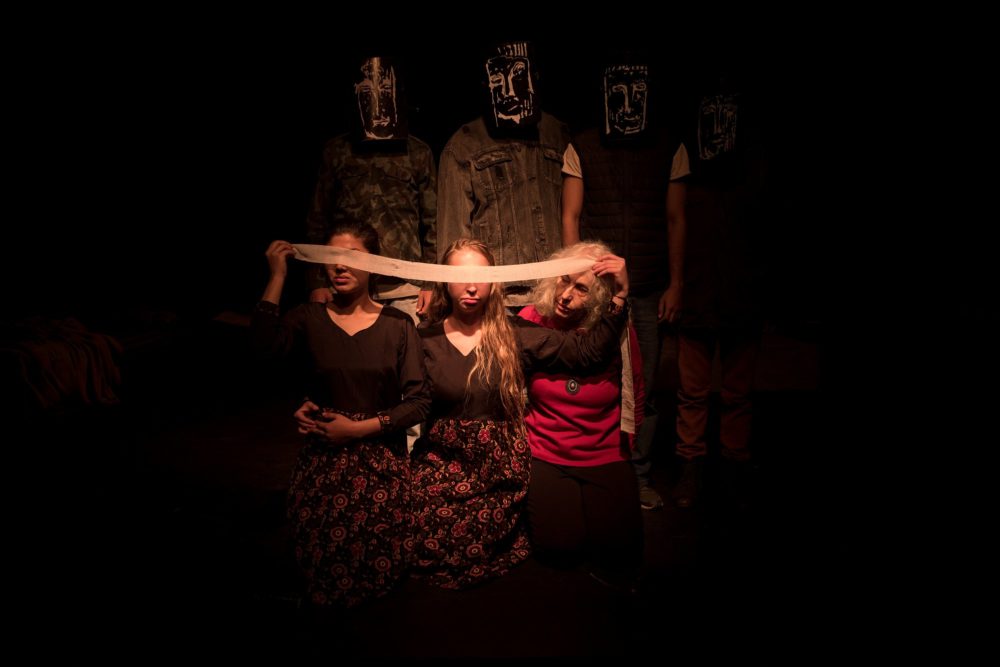
Alicia Partnoy, professor of modern languages and literatures, had her book The Little School brought to life on stage in Nepal by One World Theatre. Partnoy’s The Little School is a collection of vignettes that reflects on her time as a “disappeared” during the Argentinian Dirty War, a period during which the country’s military dictatorship turned against its own people. Approximately 30,000 citizens were killed or “disappeared” – kidnapped by the authorities and never heard from again. Partnoy spent three and a half months in one concentration camp, known as the little school, where she was blindfolded, tortured, and starved. Both Partnoy and her daughter, Eva Leiva Partnoy, an LMU alumna, starred as different representations of Partnoy’s self in the recent production.
Partnoy narrated her experiences in the concentration camp while her daughter depicted the consciousness of her younger self in the camp, acting out the actions and feelings of the young Alicia who was bound and blindfolded. As the young Alicia struggled to stay alive, she grappled with the closeness of death, but found solace in small moments, such as the sensation of rain leaking from the ceiling onto her hand.
Documenting these moments helped Partnoy to survive, but the scars are still there. “We try to manage it but we never completely heal,” said Partnoy. “We try to keep our wounds clean so they don’t infect, I guess. We are damaged; our children and our families are damaged. My brother killed himself. These are the silent victims. Everyone is traumatized. What we can do is soothe our pain. But I am not going to close this. I am connecting with others who helped me create this community of survivors. We lean on each other.”
The book-to-stage adaptation enabled a new audience to learn about the Dirty War and compare it to their own Nepalese Civil War that occurred from 1996-2006. The play’s main themes deal with learning how to survive after experiencing trauma, the dignity of a person, and holding on to one’s humanity.
“The perpetrators of these crimes want the people to see victims and survivors as non-human,” said Partnoy. “The only way to get away with this violence is to consider the person you are destroying as non-human. All we can rescue of our humanity is in our art. The reason why I wrote The Little School is I got very scared. I didn’t want to read the Amnesty International report—torture after torture, fact after fact. I know people get tired of reading those things. I wanted to grab the reader’s attention with something that has to do with how we connected as human beings, how we resisted as human beings, and how they didn’t destroy us as human beings.”
The Little School has helped give voice to those who were not able to get justice after the dictatorship was over. Partnoy’s work remembers the lives of Argentinians whose lives were unfairly taken by the government and reminds us of the sanctity of human life.



